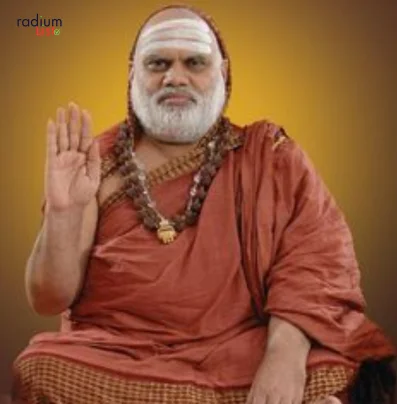Exploring the Top 10 Controversial Babas in India
In India, spiritual leaders, known as “babas,” hold immense sway over vast numbers of devotees. While some are respected for their spiritual guidance and charitable endeavors, others have become mired in controversy.
Exploring the Top 10 Controversial Babas in India
Baba Ramdev
Baba Ramdev, renowned for his advocacy and promotion of yoga and Ayurveda, has garnered both admiration and criticism.
Asaram Bapu
Asaram Bapu, once revered as a spiritual leader and mentor to millions, saw his reputation tarnished by grave allegations of sexual assault and exploitation.
Baba Ramdev: The Yoga Guru Turned Business Mogul
Baba Ramdev, renowned for his advocacy and promotion of yoga and Ayurveda, has garnered both admiration and criticism. While he has played a pivotal role in popularizing these ancient Indian practices on a global scale, Ramdev has also faced scrutiny for his opulent lifestyle and extensive business pursuits. Despite his humble beginnings as a yoga instructor, Ramdev’s empire now includes a vast array of consumer goods, ranging from herbal supplements to personal care products.
Critics argue that his commercial ventures contradict the ascetic principles of yoga and Ayurveda, which emphasize simplicity and renunciation of materialism. Moreover, Ramdev’s political affiliations and outspoken support for certain political ideologies have further fueled controversy surrounding his public persona. Despite these criticisms, Ramdev remains a prominent figure in India’s spiritual and wellness landscape, with millions of followers who credit him with transforming their lives through yoga and Ayurvedic practices. His journey underscores the complexities of modern spirituality and the intersection of commerce and tradition in contemporary India.
Asaram Bapu: The Convicted Guru
Asaram Bapu, once revered as a spiritual leader and mentor to millions, saw his reputation tarnished by grave allegations of sexual assault and exploitation. The accusations leveled against him shook the foundations of his religious empire and led to a dramatic fall from grace. Multiple women came forward with allegations of sexual misconduct, claiming they had been assaulted by Asaram Bapu under the guise of spiritual guidance.
The ensuing legal battle garnered widespread attention and scrutiny, as the case unfolded in Indian courts. Despite vehemently denying the allegations, Asaram Bapu was ultimately convicted and sentenced to life imprisonment in 2018. His downfall sent shockwaves through the spiritual community and sparked debates about the prevalence of abuse of power within religious institutions.
The case against Asaram Bapu shed light on the vulnerabilities faced by devotees who place unwavering trust in their spiritual leaders. It underscored the importance of accountability and transparency within religious organizations, prompting calls for stricter regulations and oversight. The impact of his conviction reverberated across India, prompting soul-searching within religious communities and prompting conversations about the need to uphold ethical standards and safeguard the welfare of followers.
While Asaram Bapu’s legacy may forever be marred by scandal, his case serves as a cautionary tale about the dangers of unchecked authority and the imperative of holding individuals accountable for their actions, regardless of their perceived spiritual stature.
Gurmeet Ram Rahim Singh: The Self-Styled Godman
Gurmeet Ram Rahim Singh, the charismatic and flamboyant leader of the Dera Sacha Sauda sect, found himself embroiled in a slew of serious allegations that shook the foundations of his religious empire. Accusations of rape, murder, and forced castrations tarnished his reputation and sparked widespread outrage and condemnation.
The allegations against Gurmeet Ram Rahim Singh came to light when two female followers accused him of sexual assault. Their brave testimonies opened the floodgates, with more victims coming forward with harrowing accounts of abuse and exploitation. Additionally, investigations revealed disturbing instances of murder and forced castrations within the sect, further deepening the crisis surrounding Gurmeet Ram Rahim Singh’s leadership.

The ensuing legal battle saw Gurmeet Ram Rahim Singh convicted on multiple charges, including rape and murder, leading to his sentencing to life imprisonment. The case sent shockwaves through the religious community and prompted soul-searching about the unchecked power wielded by spiritual leaders.
The downfall of Gurmeet Ram Rahim Singh served as a wake-up call, highlighting the dangers of blind devotion and the need for robust accountability measures within religious organizations. It underscored the importance of safeguarding the rights and dignity of followers, ensuring that no individual, regardless of their status or influence, is above the law.
While Gurmeet Ram Rahim Singh’s legacy may be marred by scandal and controversy, his case serves as a reminder of the resilience of survivors and the imperative of justice in holding perpetrators accountable for their actions.
Nithyananda: The Controversial Swami
Swami Nithyananda, a self-styled godman, rose to notoriety due to a series of scandals that rocked both his spiritual organization and the wider Indian society. Accusations of sexual misconduct, financial fraud, and his ambitious agenda of establishing a Hindu nation thrust him into the spotlight, sparking intense scrutiny and controversy.
The first major scandal involving Swami Nithyananda emerged when a video purportedly showing him engaging in sexual activities with an actress surfaced online. The scandal sent shockwaves through his devotees and triggered widespread outrage, leading to legal action against him. Subsequent investigations uncovered allegations of financial irregularities and fraud within his organization, further tarnishing his reputation.
In addition to the sex scandal and financial misconduct, Swami Nithyananda drew condemnation for his grandiose ambitions of creating a Hindu nation. He proclaimed himself the leader of a sovereign state called “Kailasa,” claiming to offer asylum to persecuted Hindus worldwide. This audacious move drew skepticism and criticism from both authorities and the public, who viewed it as a thinly veiled attempt to evade legal accountability.
Despite facing mounting legal challenges and public backlash, Swami Nithyananda remained defiant, continuing to propagate his teachings and ideals through various means, including social media platforms and spiritual gatherings. However, his controversies have significantly eroded his credibility and undermined the trust of his followers, leading many to question his legitimacy as a spiritual leader.
The saga of Swami Nithyananda serves as a cautionary tale about the dangers of unchecked power and blind faith. It underscores the importance of holding spiritual leaders accountable for their actions and protecting vulnerable individuals from exploitation and manipulation in the name of religion.
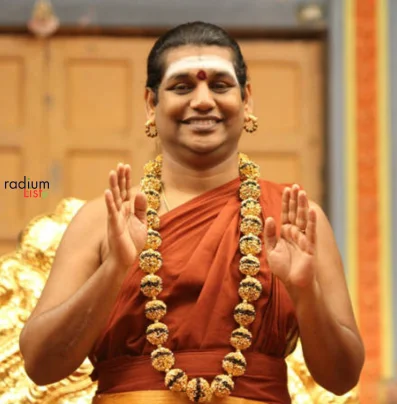
Radhe Maa: The Glamorous Godwoman
Radhe Maa, also known as Sukhvinder Kaur, gained widespread attention for her flamboyant lifestyle and unconventional approach to spirituality. Donning flashy outfits adorned with heavy jewelry, she presented herself as a divine figure, attracting a devoted following of followers seeking spiritual guidance. However, her extravagant demeanor and opulent lifestyle stood in stark contrast to traditional notions of asceticism and humility associated with spiritual leaders, sparking controversy and drawing criticism from various quarters.
Amidst her lavish lifestyle, Radhe Maa faced allegations of exploitation and misconduct. Several individuals came forward with accusations of emotional manipulation, financial exploitation, and even physical abuse, tarnishing her reputation and casting doubt on her integrity as a spiritual guru. These allegations further fueled public outrage and scrutiny, leading to investigations by law enforcement authorities and regulatory bodies.

Despite facing legal challenges and public condemnation, Radhe Maa continued to maintain her innocence and defend her spiritual teachings. She argued that her actions were guided by divine inspiration and aimed at uplifting humanity through love and compassion. Nevertheless, the controversies surrounding her have raised questions about the authenticity of her spiritual teachings and the sincerity of her intentions.
The case of Radhe Maa serves as a cautionary tale about the pitfalls of blindly following charismatic spiritual leaders without questioning their motives or conduct. It highlights the importance of discernment and critical thinking in evaluating the credibility of spiritual figures and emphasizes the need for transparency and accountability within spiritual communities. Ultimately, Radhe Maa’s saga underscores the complex interplay between faith, power, and public perception in the realm of spirituality.
Swami Om: The Infamous Bigg Boss Contestant
Swami Om, whose real name was Vinodanand Jha, rose to infamy through his controversial appearance on reality television. Initially gaining attention as a self-proclaimed spiritual leader, Swami Om’s antics on reality shows quickly garnered widespread notoriety. His outlandish behavior, including provocative statements, disruptive actions, and confrontations with fellow contestants, earned him a reputation for being a troublemaker rather than a revered spiritual figure.
Beyond his televised antics, Swami Om’s involvement in criminal activities further tarnished his already dubious reputation. He faced various charges, including assault, theft, and trespassing, with several cases pending against him in different courts. These legal troubles painted a stark contrast to his purported role as a spiritual guide, undermining any credibility he may have had in spiritual circles.
Swami Om’s downfall was further exacerbated by his controversial remarks and scandalous behavior, which often drew condemnation from both the public and religious authorities. His antics, characterized by sensationalism and attention-seeking behavior, alienated many who had initially regarded him as a spiritual leader.
Despite his notoriety, Swami Om continued to court controversy and remained in the public eye through various media appearances and public stunts. However, his reputation as a spiritual leader was irreparably damaged, with many viewing him more as a disgraced celebrity than a revered guru.
Swami Om’s story serves as a cautionary tale about the pitfalls of seeking fame and fortune at the expense of one’s spiritual integrity. It underscores the importance of authenticity and ethical conduct in the realm of spirituality, reminding us that true spiritual leaders are defined not by their public persona or media antics but by their sincerity, wisdom, and moral character.
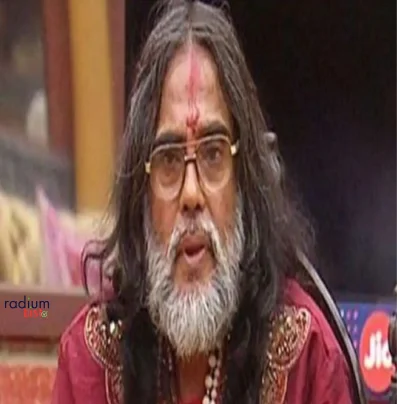
Sant Rampal: The Sect Leader
Sant Rampal, once hailed as a spiritual leader by his followers, became embroiled in a violent confrontation with authorities that exposed the perils of cult-like devotion. Initially gaining prominence for his teachings and spiritual discourses, Rampal gradually amassed a devoted following, establishing himself as the leader of a religious sect known as the Satlok Ashram.
However, Rampal’s influence took a dark turn when he became entangled in legal controversies and faced charges of murder, conspiracy, and sedition. In November 2014, authorities attempted to arrest Rampal in connection with a murder case, leading to a tense standoff between his supporters and law enforcement agencies at his ashram in Hisar, Haryana.
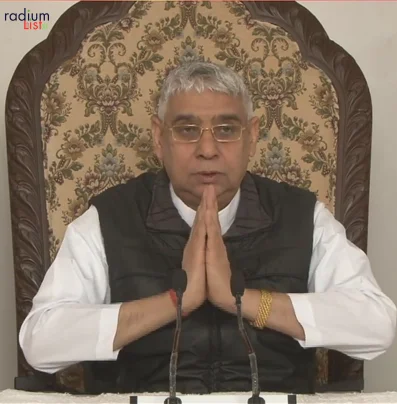
The standoff escalated into a violent clash as Rampal’s followers barricaded themselves inside the ashram, brandishing weapons and hurling stones at the police. The ensuing chaos resulted in casualties on both sides, with several people injured and multiple fatalities reported.
The incident shed light on the dangers of blind allegiance and the susceptibility of devotees to manipulation by charismatic leaders. Rampal’s ability to command such unwavering loyalty from his followers, despite facing serious criminal charges, underscored the power dynamics inherent in cult-like organizations.
Ultimately, the violent confrontation served as a sobering reminder of the potential consequences of unchecked authority and the need for vigilant oversight to prevent the exploitation of religious fervor for nefarious purposes. It also sparked a broader conversation about the influence of cults and the importance of critical thinking and skepticism in evaluating spiritual leaders and their teachings.
Acharya Balkrishna: The Controversial Ayurveda Entrepreneur
Acharya Balkrishna, a prominent figure within Baba Ramdev’s business empire, found himself under intense scrutiny due to questions surrounding his educational credentials and the operations of the businesses he oversees. As the managing director of Patanjali Ayurved Limited, Balkrishna played a key role in the rapid expansion of the company, which specializes in producing Ayurvedic products ranging from herbal supplements to personal care items.
However, allegations surfaced regarding Balkrishna’s academic qualifications, with some questioning the legitimacy of the degrees he claimed to hold. In response, Balkrishna’s educational background became the subject of investigations by government agencies, leading to doubts about his eligibility to occupy such a prominent position within the company.
Moreover, Patanjali Ayurved faced criticism for its business practices, including allegations of false advertising, product quality issues, and non-compliance with regulatory standards. Critics raised concerns about the company’s aggressive marketing strategies and its claims of offering natural and organic products, which were sometimes found to be misleading or unsubstantiated.
Despite the controversies, Balkrishna and Patanjali Ayurved continued to enjoy significant success, bolstered by their association with Baba Ramdev and the widespread popularity of Ayurvedic remedies in India. However, the controversies surrounding Balkrishna’s qualifications and the company’s business practices served as a reminder of the importance of transparency, accountability, and ethical conduct in the corporate world.
The scrutiny faced by Balkrishna and Patanjali Ayurved highlighted broader issues related to corporate governance, consumer protection, and the regulation of the Ayurvedic industry in India. It underscored the need for greater oversight and regulation to ensure that companies operate ethically and responsibly, especially when dealing with matters related to public health and well-being.

Chandraswami: The Enigmatic Spiritual Guru Facing Legal Turmoil
Chandraswami, a controversial figure renowned for his purported mystical abilities and alleged ties to prominent political figures, navigated a tumultuous life marked by legal entanglements and scandals that overshadowed his mystique. Despite cultivating an aura of spiritual authority and wielding considerable influence among the political elite, Chandraswami’s reputation was marred by a series of controversies and legal troubles.
Throughout his career, Chandraswami faced numerous allegations ranging from financial impropriety to involvement in criminal activities. His close association with several high-profile politicians and leaders drew scrutiny, with accusations of using his influence for personal gain and unethical practices. Despite maintaining a veneer of spirituality and mysticism, Chandraswami’s actions often contradicted his purported teachings and principles.
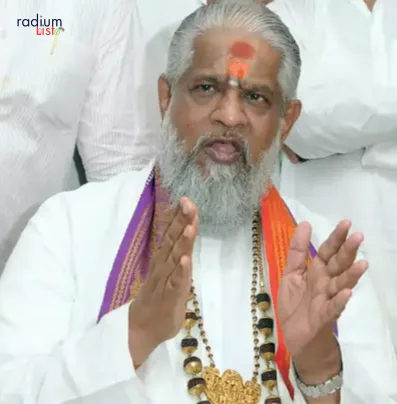
One of the most significant controversies surrounding Chandraswami involved accusations of financial fraud and money laundering, leading to investigations by law enforcement agencies both in India and abroad. Additionally, allegations of involvement in arms dealing and illicit activities further tarnished his image and raised questions about his moral character.
Despite facing legal challenges and public condemnation, Chandraswami continued to wield influence within political circles and retain a loyal following among devotees who revered him as a spiritual guru. However, his legacy remains clouded by controversy, with many questioning the authenticity of his spiritual teachings and the sincerity of his intentions.
In the wake of Chandraswami’s legal troubles and controversies, his purported mystical powers and spiritual authority came under scrutiny, casting doubt on the authenticity of his claims and the legitimacy of his influence. Ultimately, Chandraswami’s life serves as a cautionary tale about the pitfalls of unchecked power, the dangers of hubris, and the complexities of navigating the intersection of spirituality and politics.
Jayendra Saraswathi Swamigal:Controversy with Contributions
Jayendra Saraswathi Swamigal, a highly esteemed Shankaracharya, left an indelible mark on society through his profound spiritual leadership and impactful social initiatives. Revered by millions of followers for his unwavering commitment to Hinduism and his tireless efforts to uplift communities, Swamigal’s legacy is characterized by a delicate balance between reverence and controversy.
Throughout his life, Swamigal spearheaded various philanthropic endeavors aimed at alleviating the suffering of the marginalized and promoting education, healthcare, and environmental conservation. His dedication to social welfare endeared him to people from all walks of life, earning him widespread admiration and respect.
However, Swamigal’s legacy was marred by a controversial arrest in connection with criminal allegations, which sparked widespread debate and divided public opinion. Despite facing legal challenges and enduring intense scrutiny, Swamigal maintained his innocence and continued to inspire his followers through his teachings and spiritual guidance.
Despite the controversy surrounding his arrest, Swamigal’s contributions to Hinduism and society at large remain undeniable. His profound spiritual insights, coupled with his unwavering commitment to service, have left an indelible impact on countless lives, transcending the confines of controversy and adversity.
Today, Jayendra Saraswathi Swamigal is remembered not only for his spiritual prowess but also for his compassionate heart and unwavering dedication to the betterment of humanity. His teachings continue to resonate with devotees worldwide, serving as a guiding light in their spiritual journey.
In the annals of history, Swamigal’s legacy serves as a testament to the complexities of human nature and the enduring power of spirituality to transcend adversity and inspire positive change. Despite the controversies that surrounded him, his profound impact on society endures, reminding us of the timeless wisdom and compassion embodied by spiritual leaders throughout the ages.
